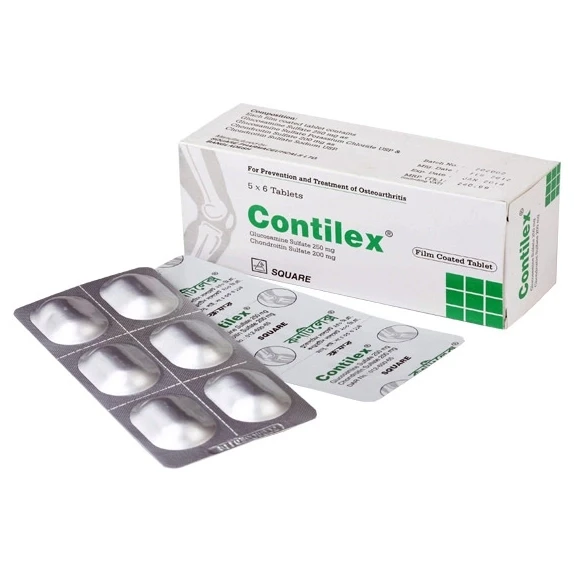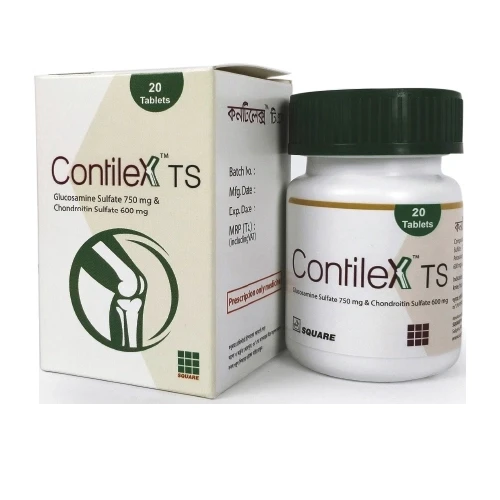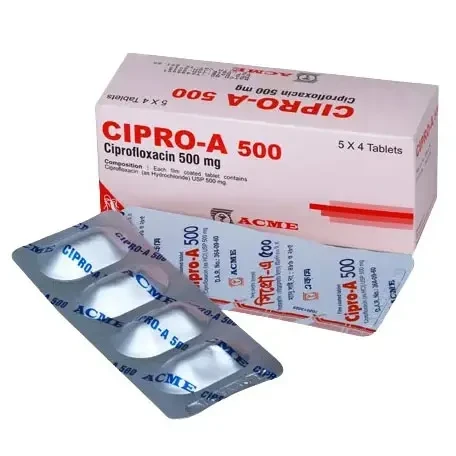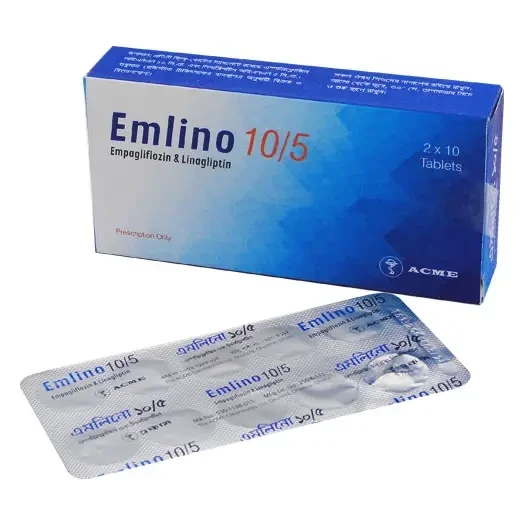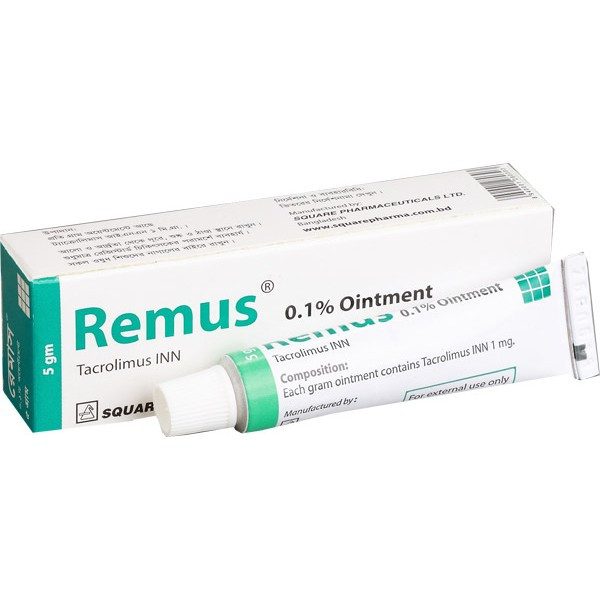

Ripril Tablet, Ramipril 5 mg
Inhouse product
-
৳11.40
৳12.00 -
৳42.75
৳45.00 -
৳16.63
৳17.50 -
৳2.14
৳2.25
Reviews & Ratings
Indications
Ripril tablet
indicated in the following cases:
- Hypertension; to lower blood
pressure, as single-drug therapy or in combination with other
antihypertensive agents.
- Congestive heart failure; also
in combination with diuretics.
- Treatment of patients who-
within the first few days after an acute myocardial infarction- have
demonstrated clinical signs of congestive heart failure.
- Treatment of non-diabetic or
diabetic overt glomerular or incipient nephropathy.
- Reduction in the risk of
myocardial infarction, stroke, or cardiovascular death in patients with an
increased cardiovascular risk, such as manifest coronary heart disease
(with or without a history of myocardial infarction), a history of stroke,
a history of peripheral vascular disease, or diabetes mellitus that is
accompanied by at least one other cardiovascular risk factor
(microalbuminuria, hypertension, elevated total cholesterol levels, low
high-density lipoprotein cholesterol levels, smoking).
* রেজিস্টার্ড চিকিৎসকের পরামর্শ মোতাবেক ঔষধ সেবন করুন'
Pharmacology
Ramipril is an
angiotensin converting enzyme (ACE) inhibitor, which after hydrolysis to
ramiprilat, blocks the conversion of angiotensin I to the vasoconstrictor
substance, angiotensin II. So, inhibition of ACE by ramipril results in
decreased plasma angiotensin II, which leads to decreased vasopressor activity
and decreased aldosterone secretion. Thus ramipril exerts its antihypertensive
activity. It is also effective in the management of heart failure and reduction
of the risk of stroke, myocardial infarction and death from cardiovascular
events. It is long acting and well tolerated; so, can be used in long term
therapy.
Dosage
Dosage of Ramipril
must be adjusted according to the patient tolerance and response.
Hypertension: For the management of hypertension in adults
not receiving a diuretic, the usual initial dose of Ramipril is 1.25-2.5 mg
once daily. Dosage generally is adjusted no more rapidly than at 2 week
intervals. The usual maintenance dosage in adults is 2.5-20 mg daily given as a
single dose or in 2 divided doses daily. If BP is not controlled with Ramipril
alone, a diuretic may be added.
Congestive heart
failure after myocardial infarction: In this case, Ramipril therapy may be initiated as early as 2
days after myocardial infarction. An initial dose of 2.5 mg twice daily is
recommended, but if hypotension occurs, dose should be reduced to 1.25 mg twice
daily. Therapy is then titrated to a target daily dose of 5 mg twice daily.
Prevention of major
cardiovascular events: In this case, the
recommended dose is 2.5 mg once daily for the first week of therapy and 5 mg
once daily for the following 3 weeks; dosage then may be increased, as
tolerated, to a maintenance dosage of 10 mg once daily.
Dosage in renal
impairment:
- For patients with
hypertension and renal impairment:
The recommended initial dose is 1.25 mg Ramipril once daily. Subsequent
dosage should be titrated according to individual tolerance and BP
response, up to a maximum of 5 mg daily.
- For patients with
heart failure and renal impairment:
The recommended dose is 1.25 mg once daily. The dose may be increased to
1.25 mg twice daily and up to a maximum dose of 2.5 mg twice daily
depending upon clinical response and tolerability.
* রেজিস্টার্ড চিকিৎসকের পরামর্শ মোতাবেক ঔষধ সেবন করুন'
Administration
Ramipril tablets have
to be swallowed with sufficient amounts of liquid. The tablets must not be
chewed or crushed. Absorption of Ramipril is not significantly affected by
food. Ramipril may, therefore, be taken before, during or after a meal.
* রেজিস্টার্ড চিকিৎসকের পরামর্শ মোতাবেক ঔষধ সেবন করুন'
Interaction
Concomitant
administration with diuretics may lead to serious hypotension and in addition
dangerous hyperkalemia with potassium sparing diuretics. Concomitant therapy
with lithium may increase the serum lithium concentration. Reduction in BP may
affect the ability to drive and operate machinery and this may be exacerbated
by alcohol. NSAIDs may reduce the antihypertensive effect of Ripril and cause
deterioration of renal function.
Contraindications
Ramipril must not be
used
- in patients with
hypersensitivity to ramipril, to any other ACE inhibitor, or any of the
excipients of Ramipril.
- in patients with a history of
angioedema.
- concomitantly with
sacubitril/valsartan therapy. Do not initiate Ramipril until
sacubitril/valsartan is eliminated from the body. In case of switch from
Ramipril to sacubitril/valsartan, do not start sacubitril/valsartan until
Ramipril is eliminated from the body.
- in patients with
haemodynamically relevant renal artery stenosis, bilateral or unilateral
in the single kidney.
- in patients with hypotensive or
haemodynamically unstable states.
- with aliskiren-containing
medicines in patients with diabetes or with moderate to severe renal
impairment (creatinine clearance <60 ml/min).
- with angiotensin II receptor
antagonists (AIIRAs) in patients with diabetic nephropathy.
- during pregnancy.
Concomitant use of ACE
inhibitors and extracorporeal treatments leading to contact of blood with
negatively charged surfaces must be avoided, since such use may lead to severe
anaphylactoid reactions. Such extracorporeal treatments include dialysis or
haemofiltration with certain high-fux (e.g. polyacrylonitril) membranes and low-density
lipoprotein apheresis with dextran sulfate.
Side Effects
Ripril is generally
well tolerated. Dizziness, headache, fatigue and asthenia are commonly reported
side effects. Other side effects occurring less frequently include symptomatic
hypotension, cough, nausea, vomiting, diarrhoea, rash, urticaria, oliguria,
anxiety, amnesia etc. Angioneurotic oedema, anaphylactic reactions and
hyperkalaemia have also been reported rarely.
Pregnancy &
Lactation
Ramipril must not be
taken during pregnancy. Therefore, pregnancy must be excluded before starting
treatment. Pregnancy must be avoided in cases where treatment with ACE
inhibitors is indispensable. If the patient intends to become pregnant,
treatment with ACE inhibitors must be discontinued, i.e. replaced by another
form of treatment. If the patient becomes pregnant during treatment, medication
with Ramipril must be replaced as soon as possible by a treatment regimen
without ACE inhibitors. Otherwise, there is a risk of harm to the fetus.
Ramipril is not recommended during breastfeeding.
Precautions &
Warnings
Ripril should be used
with caution in patients with impaired renal function, hyperkalaemia,
hypotension, and impaired hepatic function.
Use in Special
Populations
Elderly: A reduced initial dose of 1.25 mg Ripril
daily must be considered.
Hepatic impairment: Treatment in these patients must therefore
be initiated only under close medical supervision. The maximum permitted daily
dose in such cases is 2.5 mg Ripril.
Renal impairment: With a creatinine clearance between 50 and
20 ml/min per 1.73 m2 body surface area, the initial daily dose is generally
1.25 mg Ripril. The maximum permitted daily dose, in this case, is 5 mg Ripril.
Patients with incompletely corrected fuid or salt depletion, in patients with
severe hypertension, as well as in patients in whom a hypotensive reaction
would constitute a particular risk, (e.g., with relevant stenoses of the
coronary vessels or those supplying the brain) A reduced initial dose of 1.25
mg Ripril daily must be considered.
Patients pretreated
with a diuretic: Consideration must
be given to discontinuing the diuretic for at least 2 to 3 days or- depending
on the duration of action of the diuretic- longer before starting treatment
with Ripril, or at least to reducing the diuretic dose. The initial daily dose
in patients previously treated with a diuretic is generally 1.25 mg Ripril.
Overdose Effects
Sign and symptom: Overdosage may cause excessive peripheral
vasodilatation (with marked hypotension, shock), bradycardia, electrolyte
disturbances, and renal failure.
Management: Primary detoxifcation by, for example,
gastric lavage, administration of adsorbents, sodium sulfate; (if possible
during the frst 30 minutes). In the event of hypotension administration of
α1-adrenergic agonists (e.g. norepinephrine, dopamine) or angiotensin II
(angiotensinamide), which is usually available only in scattered research
laboratories, must be considered in addition to volume and salt substitution.
Therapeutic Class
Angiotensin-converting
enzyme (ACE) inhibitors
Storage Conditions
Store at 30° or below,
protect from light. Keep out of the reach of children. Do not use later than
the date of expiry. To be dispensed only on the prescription of a registered
physician.
Frequently Bought Products
Epitra Tablet, Clonazepam 2 mg
Dclot Tablet, Clopidogrel Bisulphate 75 mg
Canaglif Tablet, Canagliflozin Hemihydrate 100 mg
Cipro-A Tablet, Ciprofloxacin 500 mg
Angilock Tablet, Losartan Potassium 100 mg
Clofenac Gel 20 gm, Diclofenac Sodium 1% w/w,
Remus Ointment 10 gm, Tacrolimus Monohydrate 0.1%
Product Queries (0)
Login Or Registerto submit your questions to seller
Other Questions
No none asked to seller yet
-
৳11.40
৳12.00 -
৳42.75
৳45.00 -
৳16.63
৳17.50 -
৳2.14
৳2.25




